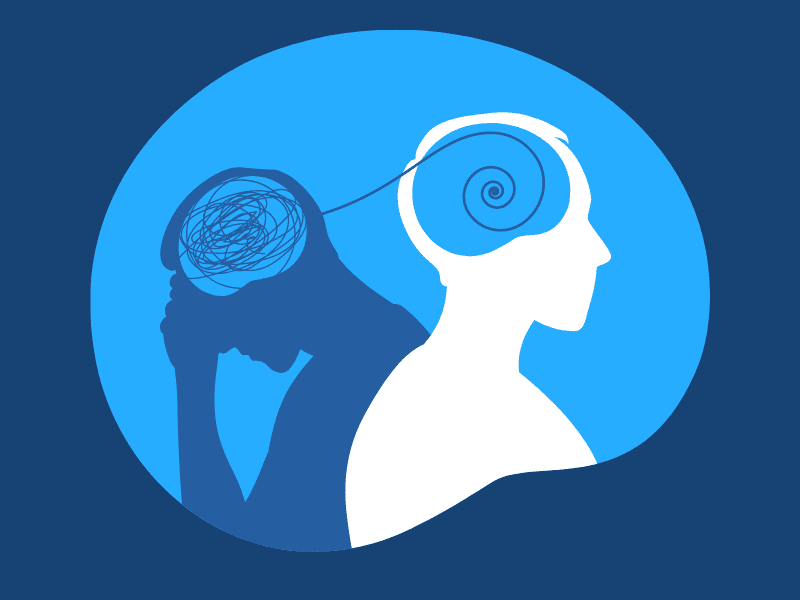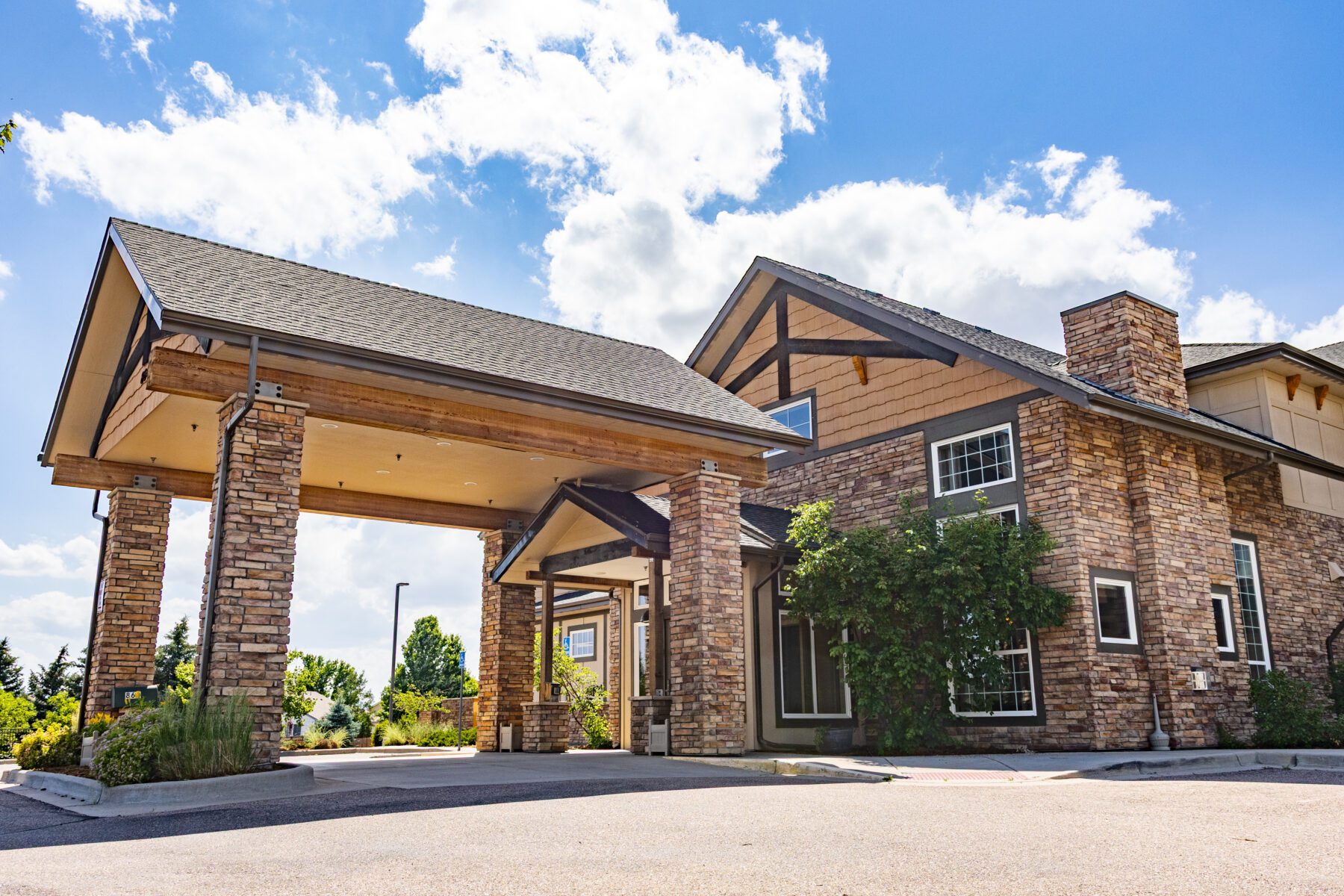Young Adult Anxiety Treatment
Someone with an anxiety disorder has anxiety that does not go away, can worsen over time, and typically interferes with daily life.
Anxiety Disorder in Young Adults
Young adulthood is an emotional and challenging time when it comes to gaining independence, searching for an identity, and juggling everyday responsibilities like school, work, and relationships.
All of these factors can contribute to feelings of anxiety which is characterized by fear, worry, and uneasiness.
According to the Journal of Psychiatric Research, anxiety is most common and has increased among young adults ages 18 to 25.
Someone with GAD has excessive worry about everyday issues such as school, work, health, family, and other things. To be considered GAD, a person has these worries and feelings almost every day for at least six months.
A person with panic disorder experiences panic attacks. Panic attacks involve sudden episodes of intense fear, anxiety, or discomfort. They can last for several minutes or more.
An individual with a social anxiety disorder may feel that they are constantly being watched or judged by others. They may fear attending social events or situations which can interfere with everyday things like going to work or school. Social anxiety is also referred to as a social phobia.
OCD is a long-lasting disorder where a person has uncontrollable, reoccurring thoughts or behaviors that they feel they need to repeat over and over again.
People with phobias have an extreme fear of something that typically poses little or no harm.


Sandstone Care offers age-specific, individualized, and evidence-based treatment programs that help you regain control of your life and achieve lasting recovery.
Symptoms can vary depending on what type of anxiety disorder someone has. However, there is a common misconception about the difference between anxiety and anxiety disorder. Someone who has anxiety does not necessarily have an anxiety disorder.
Some symptoms of OCD may also be normal habits that someone has. Someone who has OCD typically can’t control their thoughts or behaviors and has problems in their everyday life because of these thoughts and behaviors.
There are many reasons why young adults experience anxiety.
Young adulthood is full of new transitions and experiences, whether regarding money, work, school, or personal relationships, which can be stressful and difficult to manage.
Some young adults may try to suppress these feelings or overlook them, as many symptoms of anxiety disorder are common during young adulthood.
Additionally, young adults may feel anxious about the state of the world, the ongoing pandemic, political and environmental issues, and other problems.
The growing use of social media among young people can also have a negative impact on the mental health of young adults.
While social media is a convenient way to connect and interact with others, it also makes it easier to spread untrue or hurtful messages and creates unrealistic expectations of people and their lives.
Social media can cause problems relating to self-esteem, body image, and self-worth.
Symptoms of anxiety may also be caused by certain physical health conditions, like thyroid problems or even caffeine and other substances and medications.
The risk factors for anxiety disorders differ; however, general risk factors may include:

There are many different options for anxiety treatment.
Sandstone Care is here to support teens and young adults with mental health issues and substance use disorders.
A young adult with anxiety may feel like they are in a constant state of worry.
It can be difficult to control their feelings and fears. It may also be hard to get through everyday tasks or situations.
Young adults with anxiety may find it hard to relax, socialize with others, or concentrate at school or work.
Anxiety can differ from person to person and can often go overlooked because some of the symptoms of anxiety can be normal for young adults to a certain extent.
Additionally, a common misconception about anxiety disorders is that you have to be shy or introverted to have anxiety. While anxiety may cause someone to be shy or less social, there are many outgoing or bubbly people who struggle with anxiety.
Performance in school, sports, or jobs
Their health and the health of others
Finances
A catastrophe such as a natural disaster or war

If you have fears and worries that negatively affect your everyday life over a long period of time, it could be a sign that you are developing anxiety.
If you think that you or a loved one is developing anxiety, it is important to reach out for professional help.
Sandstone Care helps individuals work through past trauma, dependence, and other stressors.
The anxiety treatment program involves:
Healthcare providers, such as primary care providers or psychiatrists, can prescribe medication for anxiety.
Treatment is unique to each individual, and healthcare providers can work with you and help figure out whether or not the medication is needed.
Medication can help relieve some symptoms of anxiety. Sometimes, anxiety medication is prescribed along with therapy.
What are the Sandstone Care Treatment Options for Young Adults with Anxiety?
Sandstone Care’s programs offer support to young adults who struggle with drug use and mental health or co-occurring conditions such as depression, anxiety, and PTSD.
Sandstone Care’s outpatient program is an individualized daytime program over an 8 to 12-week period.
IOP can help young adults understand their substance abuse or mental health struggles like anxiety to be able to overcome them.
Sandstone Care also offers a virtual IOP that can be ideal for those who may live far from a treatment center, have transportation issues, or have health concerns that may interfere with in-person treatment.
Day treatment, or PHP, is less intensive than inpatient or residential treatment programs.
Day treatment is typically used for young adults who may be struggling with both a substance use disorder and a mental health disorder.
Group therapy effectively treats young adults with anxiety because it provides a community where individuals can share their feelings and experiences and feel safe.
Group therapy can help each member learn and teach others from their own experiences.
CBT is a well-researched form of psychotherapy commonly used to treat mental health disorders and substance abuse disorders.
CBT can help treat anxiety by changing the way a person thinks, behaves, and reacts.
CBT can be used in both group and individual settings. Individuals are able to practice the skills they learn from CBT with their therapist, other group members, and in the “real world.”
CBT is a great option for young adults because it can help develop healthy coping mechanisms for negative emotions and thoughts and apply them to their lives.
ACT is a newer form of psychotherapy treatment. ACT uses strategies like mindfulness and goal setting to help with symptoms that may come from anxiety.
This method of therapy involves the acceptance of feelings and thoughts that may be out of your control and committing to living a life where your actions are based on your values.
ACT may be helpful for young adults with anxiety because it can teach them how to appreciate and observe their thoughts rather than change those unwanted thoughts.
Sandstone Care highlights the importance of the involvement of the whole family throughout the treatment process.
When one family member struggles with a mental health disorder like anxiety or substance abuse, the whole family is affected.
Through family therapy, each member can share their feelings and experiences. With communication, the family can learn healthy skills and strategies and learn to understand one another.
Family therapy is helpful for young adults with anxiety because it helps provide them with a strong support system and a safe place to talk about things that may be difficult to discuss.
Group therapy can be helpful for teens and young adults struggling with mental health and substance use disorders.
In group therapy, members are able to share their experiences. People can learn from one another, teach others things they have learned, and relate to each other.
Anxiety and other mental illnesses can feel isolating. It is important to know that you are not alone, and mental illness is not uncommon. Group therapy can help remind people of this.
Group therapy provides young adults with a support network where they can feel safe and welcome.
Through the treatment process, Sandstone care emphasizes the importance of providing academic and vocational support.
By figuring out something to work towards, individuals can create goals and build lives they are happy with.
Sometimes school and work can contribute to anxiety in young adults. Academic and vocational support strives to figure out strategies and skills to succeed and figure out the things that weren’t working for you.
You don’t have to be under the thumb of anxiety anymore.

11820 Parklawn Dr. #403, Rockville, Maryland, 20852
(888) 850-1890
864 Barranca Drive, Castle Rock, CO 80104, Castle Rock, Colorado, 80104
(888) 850-1890
38619 Boulder Canyon Dr., Boulder, Colorado, 80302
(888) 850-1890
5040 Corporate Woods Dr., Virginia Beach, Virginia, 23462
(888) 850-1890The Continuum of Care
Access a full range of treatments for mental health and substance use disorders. Whether you need a safe transitional living community, inpatient care, or outpatient therapy, we have a program to help.
5-21 days of 24/7 on-site medical supervision.
Our Medically-Assisted Detox and Inpatient Center offers private rooms and 24/7 medically supervised care to support a safe recovery from drugs and alcohol, followed by comprehensive treatment that addresses your physical, psychological, emotional, and spiritual needs.
2-6 Months
Our Transitional Living Program combines the structure of treatment and group living, with the freedom of living away from home.
This level of care is for young adults (18-30) who are not quite ready to heal from home. This level of care provides a safe and supportive living environment integrated with a PHP or IOP level of care. Here, you’ll learn life skills and healthy recovery strategies in an environment that’s set up for your success.
4 weeks of on-site day treatment.
Our Young Adult Day Treatment Program, also known as Partial Hospitalization Program (PHP), is a highly structured level of care for young adults that offers five days of robust programming a week.
Our two distinct mental health and substance use tracks help young adults to stabilize, begin to understand their mental health and/or addiction struggles, and heal from them. We strive to help our clients become more like the person they want to be without using negative coping strategies or substances to get there.
12 weeks of on-site or virtual treatment.
Our Young Adult IOP, or Intensive Outpatient Program, offers two distinct tracks to address young adult needs, each track consisting of 3-4 days of weekly programming.
In our mood disorder track, we are able to focus on mental health, depression, trauma, and anxiety. In our dual diagnosis track, we are able to support young adults with substance use and mental health challenges. Each focuses on developing positive social, academic, and vocational habits while continuing with their job or school responsibilities.
FAQS
Check out our selection of frequently asked questions — or call us to ask us today.
Different types of drugs may work better for certain types of anxiety disorders.
It is best to consult with your health care provider to figure out the best anti-anxiety medication.
It can be beneficial for teens and young adults to try out therapies like CBT and family therapy to see if those options work well in treating anxiety before turning to medication.
The cost of anxiety treatment can differ depending on the type of treatment you are receiving.
Some insurances can cover or help with the costs of anxiety treatment.
Mental illnesses like anxiety can develop at any age, from early childhood, through adolescence, to late adulthood.
According to the NIH, GAD typically develops in your 30s, although it can develop as early as childhood.
Your 20s can involve a lot of stressors and situations that may contribute to the development of anxiety symptoms. Young adults are trying to find a sense of self while juggling big responsibilities like school, careers, and relationships.
The brain in your 20s is still going through major development. This can affect things like decision-making, emotion regulation, and impulse control. Because of this, young adults are more vulnerable to mental health issues like anxiety and substance use disorders.
One common misconception about anxiety is that it is not a real mental disorder.
Some people may think that feeling worried or anxious are feelings that happen all the time and are controllable.
The truth is that anxiety disorders are not just characterized by feelings of anxiety, but those feelings lasting every day for at least six months and are more than just general worry.
Anxiety is not something that goes away on its own, and if you let it go on without treatment, it can worsen over time.
Another misconception is that anxiety triggers are the same for everyone.
For example, one person may feel more anxious with loud noises. When for others, a quiet setting may make them feel more alone and think more. Just because something triggers symptoms of anxiety in one person doesn’t mean it applies to everyone.
Some people may also believe that medication is the only treatment for anxiety disorders.
There are various treatments for anxiety disorders that don’t involve medication and involve individualized or group therapies. These types of treatments have proved to be effective for anxiety disorders.
Anxiety is not your fault.
There are things that may contribute to feeling anxious and ways to avoid anxiety triggers, but you are not the cause of your anxiety.
Anxiety and anxiety disorder are two different things.
A lot of people may experience anxiety at some point in their lives, but it goes away.
However, if you have an anxiety disorder, it does not simply go away.
There are various effective ways of treating anxiety disorders and alleviating some of the symptoms that may come along.
Mental illness and treatment are not one-size-fits-all, so there is no set time for how long the process takes.
Once you’ve been treated for anxiety, it doesn’t necessarily mean that it has gone away.
There are different healthy ways to cope with anxiety and overthinking.
Some examples can include:
Mindfulness refers to a mental state where one is aware of the present moment. You can practice mindfulness by inserting pauses into everyday life or practicing meditation.
Being outside can benefit both your physical and mental health. This can include going on walks, doing exercises, or sitting in the sun.
Caffeine and other substances like drugs or alcohol can worsen the symptoms of anxiety.
Taking deep breaths or counting your breaths can help you take a minute to pause and release any tension in your body.
Someone can feel anxious for a variety of reasons.
The cause of anxiety could be environmental or genetic factors.
Many people may stress about common things such as finances, health, jobs, academics, relationships, and family issues. Others may feel anxious in certain situations where they may be uncomfortable.
Anxiety triggers refer to situations that may cause someone serious worry or fear. In severe cases, they may also lead to panic attacks.
Anxiety triggers are unique and not the same for everyone, meaning something that may trigger someone may not be triggering for someone else.


We understand taking the first step is difficult. There is no shame or guilt in asking for help or more information. We are here to support you in any way we can.